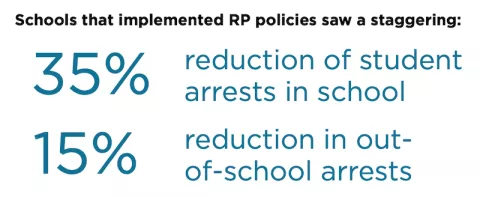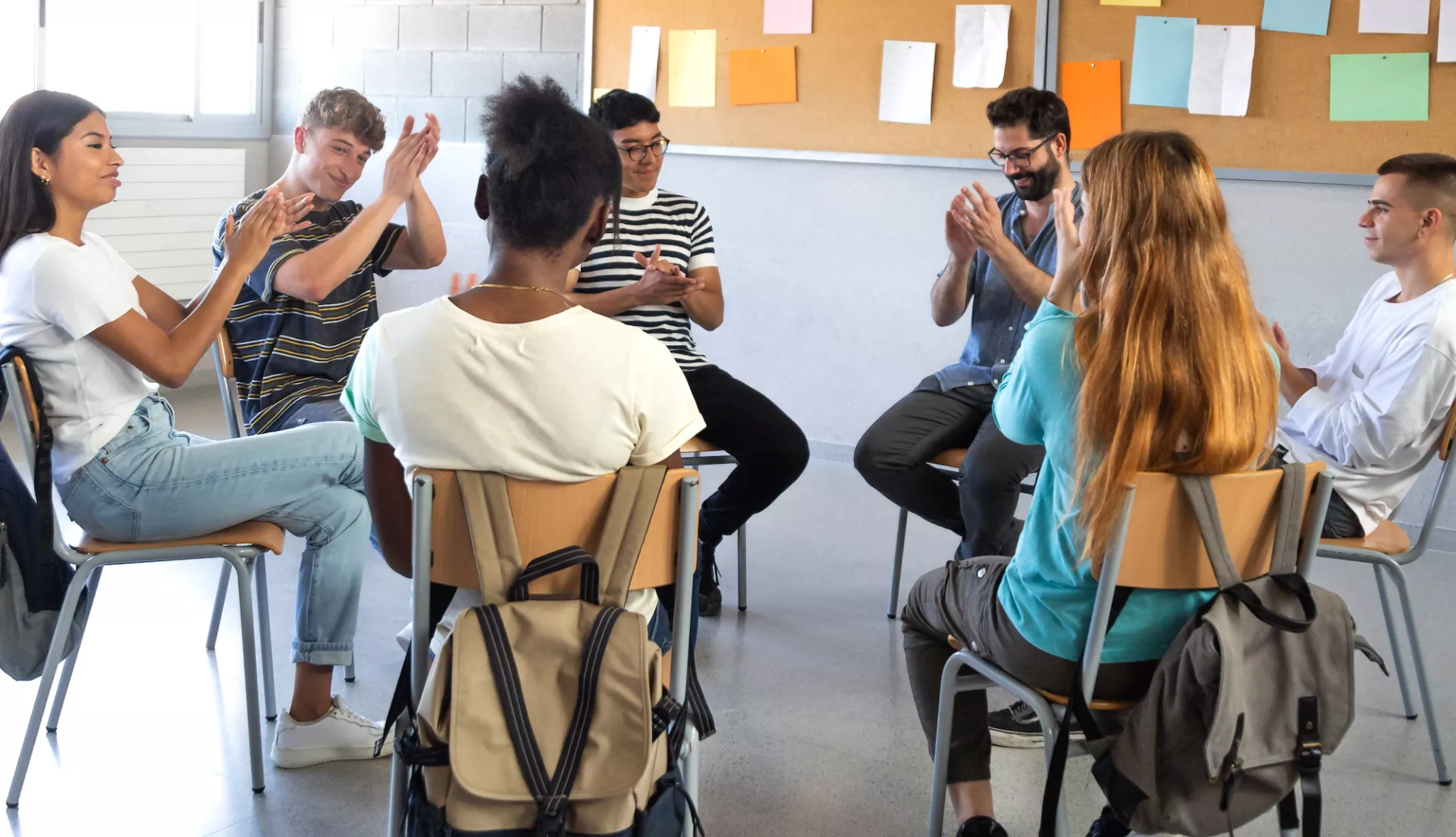
Key Takeaways
- With "zero tolerance" discipline policies falling out of favor, more schools are turning to restorative justice practices.
- New research shows that when implemented effectively, these programs can help transform a school culture.
Over the years, more schools have reexamined their exclusionary, or "zero tolerance," discipline policies and modified them to what they believe to be a fairer, more inclusive, and effective approach to discipline, known as restorative justice.
As classroom management and behavioral challenges continue to be a top concern of educators, however, schools still rely on suspensions and expulsions to punish student misbehavior. Some school leaders and educators remain skeptical that restorative justice practices—focused on building relationships, social and emotional learning, and conflict resolution—can help create healthier school climates.
But a new study by the University of Chicago Education Lab suggests the approach seems to be working quite well.
During the 2013-14 school year, Chicago Public School (CPS), the nation’s fourth-largest school district, began implementing restorative programs in middle and high schools across the district.
By evaluating educational and behavioral outcomes in many of these schools before and after the practices went into effect (2008-09 through 2018-19), University of Chicago researchers were able to “provide first-of-its-kind insights” into the program’s causal effects.

What they found was that schools that implemented restorative justice practices saw a staggering 35 percent reduction in student arrests in school and a 15 percent reduction in out-of-school student arrests. The researchers also saw declines in arrests for both violent and non-violent offenses. In addition to significant decreases in student arrests, restorative justice practices decreased out-of-school suspensions by 18 percent and improved students’ perceptions of school climate.
This improvement in perception, the report’s authors wrote, was “driven by large increases in students’ perceptions that their peers’ classroom behavior improved, their increased feeling that they belong at school, and that school is a safe place to be.”
“Our research shows that restorative practices can make a real, positive difference in addressing students’ socio-emotional needs,” said Sadie Stockdale Jefferson, executive director of the University of Chicago Education Lab. “We hope these findings inform how schools advance the health and success of students.”
The Failure of Zero Tolerance
The growing acceptance and enthusiasm for restorative justice practices comes on the heels of more than a decade of research documenting the damaging impact of exclusionary discipline.
Meted out for even relatively minor infractions, exclusionary discipline has disproportionately harmed Black students, and students who identify as LGBTQ+ and those with special needs, thereby widening the achievement gap and introducing many of these students to the criminal justice system.
Too many schools needlessly see school discipline as a zero-sum game, says researcher Anjali Adukia, co-author of the University of Chicago study. Suspend or expel students even if it brings harm to them and the school climate. Or don’t take this action and disrupt other students’ learning.
A 2021 study of New York City public schools by the American Institute for Research (AIR) found disciplining students through suspensions and expulsions did not reduce future misbehavior for the disciplined students or their peers. It also did not generate an improved academic achievement or perceptions of positive school climate.
Furthermore, the AIR study found that the more severe the punishment, the greater its negative effects were on a student’s future academic performance, attendance, and behavior.
Seeing Students Differently
For a decade, the National Education Association has called for the dismantling of the school-to-prison pipeline and the widespread adoption of restorative justice practices in school districts across the country. Using NEA resources and training, a growing number of educators are fostering more positive classroom and school climates.
For restorative justice practices to work, the entire school community must adopt the philosophy behind restorative justice and believe in its promise.
And “implementation really matters,” Adukia says.
The programs in Chicago schools were rolled out slowly, and educators received intensive training and coaching throughout the year. Any restorative practice initiative that relies on quick, one-off training will likely not be successful. “Ongoing professional development and support is critical,” Andukia explained in a recent podcast.
So, while restorative justice practices shouldn't be seen as a “panacea,” Andukia hopes policymakers will look at their potential.
“This isn't about a consequences-free school environment,” she says. “But as much as restorative practices is about teaching students how to behave, it’s also about teaching teachers how to see their students differently. This represents a set of tools that can really help them.”
Learn more about restorative practices and incorporate them into the classroom with NEA resources.
